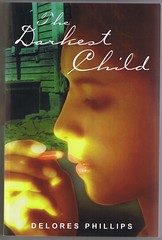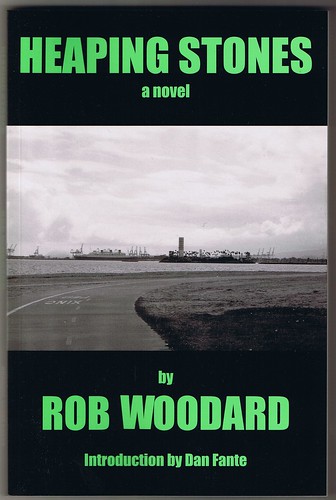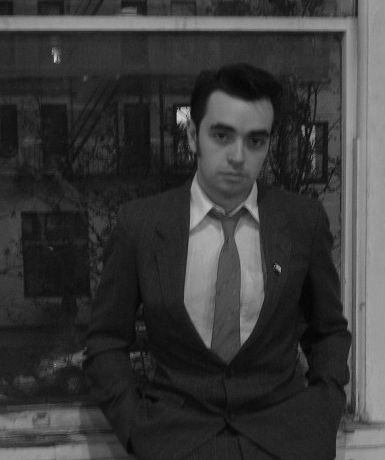scarecrow reviews

3.17.2006
Delores Philips - The Darkest Child
Marion Boyers Publishing Ltd.
£9.99 paperback.
The Darkest Child tells of fair-skinned Rozella Quinn’s many children of every shade, and their escape from – or survival under – her maniacal and cruel brand of parenting. It is set in 1958 in a small Georgia town during the outfall of de-segregation – long before psychology reached the armchair. Tangy Mae, the darkest of Rozella’s children, yearns for a better life and seeks it through education – a route Rozella attempts routinely to sabotage with violence and by forcing Tangy Mae, with her older sisters, into domestic and sexual slavery. Through Tangy Mae’s first-person narrative we observe a world where the tension of racial divides and abuses are mirrored in the internal family world.
The narrator’s self-conscious language, laden with uncomfortable description, lends the account a feeling of being over-written in places; but then again, her verbosity could have been devised by Philips to illustrate the protagonist’s youthful attempts to intellectually distance herself from the restraints of her family and of society. The feeling is she is still close to events at the time of this story’s telling.
Tangy Mae’s voice cannot be considered objective; it is closer to a diary than a report, despite seldom granting us insight into the impressive intellect other characters speak of her possessing. But throughout her narrative there is little to demonstrate that this intellectual superiority would offer her a psychological escape any more successful than the attempts of her siblings.
In the Quinn family, brutality is routine – though the mother is the sole distributor of it. The children offer one another a tenuous support system; only a local man, Velman, seeks to interrupt the abuse, rescuing Tangy Mae’s mute sister, Martha Jean, and marrying her. One might question the wisdom of involving himself in such mania; but it seems it is the novel’s intention to consider such questions of involvement, in terms of racial and family conflict.
The only character who offers any constructive thought on these matters is Junior, an activist seeking equality in a lagging society. Junior is lynched early on and leaves behind him a moral vacuum that the recipients of cruelty inflicted by evil white men and the wicked Rozella cannot fill. In a world where most characters are wicked or wretched there are few occasions where Tangy Mae reveals any insight into their inner lives beyond their responses to outer circumstances. Are we really to believe that Rozella is sometimes nice? Nice enough for her children to take her in once they’ve escaped her branding iron, ice pick and scissors? Once she has murdered one of them and prostituted others? There are only a few incidents in which Tangy Mae expresses a belief, or hope, that there is a lighter side to her mother; one being when Rozella hands her a flaccid, grey bra to mark her passage into adulthood at her school prom – not long before sending her to the whorehouse. At times, Rozella’s character is so slasher horror that her children’s hellish experiences can be viewed only with detachment, rather than the emotional investment her narrative fails to elicit. The point might be whether or not Tangy Mae is requesting our empathy at all, or merely conveying the facts – in which case we must consider the occasionally absurd description (in one instance she likens a belting to her head to a tourniquet) and whether, if this language were pared back to reveal a colder horror, we might more readily empathise.
The existence of cruelties inflicted between races and family members in this novel cannot be denied. But is this a pertinent point? This story is about conflict, repression, independence and dependence, action and inaction, yet despite all this there is never a feeling of any character – least of all Tangy Mae – having escaped their difficulties emotionally, intellectually, or otherwise. The scope of a human story such as this, unfolding against a hostile historical backdrop, requires greater character development than simply branding each one with irreparable frailties of body and mind. Beating the reader over the head with its brutality is not enough to elicit the sense of liberation this novel appears to strive for.
Naomi Ziewe © 2006.


